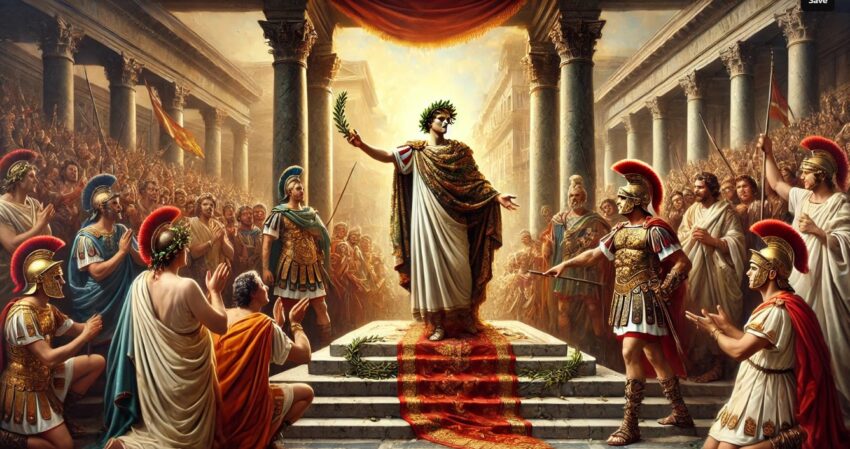Plotting Against Caesar: Conspiracy forms to restore the Republic’s authority
As Julius Caesar’s power continued to expand, the sentiment among Rome’s political elite shifted from unease to active opposition. The conspiracy against him was not born overnight but developed gradually, fueled by the collective fear that the Republic’s days were numbered if Caesar remained unchallenged. This growing opposition was characterized by secret meetings, whispered conversations, and the slow but deliberate organization of a group that included some of Rome’s most respected and influential figures.
The conspirators were a diverse group, united not by a single ideology but by a shared belief that Caesar’s rule threatened the very fabric of the Republic. These men, many of whom had fought alongside Caesar or served under him, began to see themselves as defenders of Roman tradition and liberty. They were driven by the belief that restoring the Republic required decisive action, even if it meant betraying someone who had once been a friend or ally. Ancient sources, including Appian and Cassius Dio, suggest that the conspiracy was as much about preserving their own status within the traditional power structure as it was about protecting the Republic.
Among the conspirators, there was a deep sense of urgency. They were acutely aware that time was running out; Caesar’s position was growing stronger, and with each passing day, the possibility of reversing his reforms and restoring the Senate’s authority diminished. The conspiracy was marked by a sense of desperation, as many of these men had tried and failed to curb Caesar’s power through legal and political means. The failure of these efforts left them with little choice but to consider more drastic measures.
Interestingly, the conspiracy was not entirely clandestine; there were rumors and suspicions within Rome’s political circles, and some Senators not directly involved were aware of the growing discontent. However, Caesar’s immense popularity with the people and his control over the military made open opposition risky. This forced the conspirators to operate in the shadows, carefully planning their moves to avoid detection while ensuring that their efforts would have the desired impact.
The conspirators also faced the challenge of maintaining unity within their ranks. The group included men with varying motivations—some were driven by a genuine concern for the Republic, while others were motivated by personal ambition or a desire for revenge. Keeping these disparate elements aligned and focused on the common goal of restoring the Republic required careful negotiation and compromise. Despite these challenges, the conspirators remained committed to their cause, believing that their actions were necessary to prevent the loss of Roman liberty and the permanent establishment of autocratic rule.
 |
 |
 |


